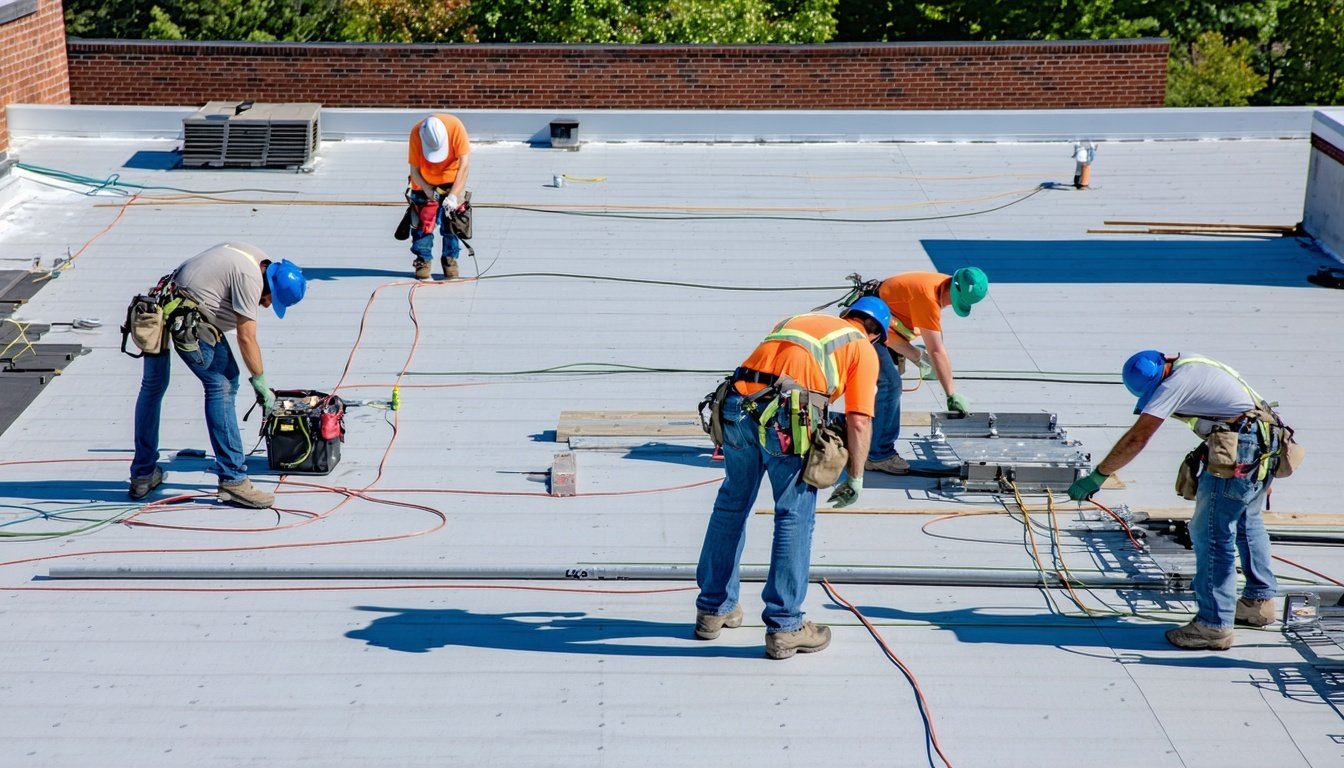Financing Your Roofing Business for Growth
Running a roofing business isn’t just about climbing ladders and installing shingles. Behind the scenes, it takes consistent investment in equipment, safety training, vehicles, materials, and staff to keep the work flowing and your customers satisfied. Whether you're launching new crews or scaling to larger projects, strategic financing can give your roofing business the boost it needs to grow.
In this guide, we’ll explore the best ways to finance your roofing business, what you can use loans for, and how to secure the right funding to scale sustainably.
Why Roofing Contractors Seek Financing
Roofing jobs often require a large upfront investment in labor, materials, and equipment—long before the final invoice is paid. Loans and financing options help contractors manage that gap while maintaining momentum.
Common reasons to seek financing include:
-
Purchasing or leasing trucks, trailers, and lifts
-
Buying shingles, flashing, and underlayment in bulk
-
Hiring and training new crew members
-
Investing in safety equipment and certifications
-
Managing cash flow during off-seasons or slow payment cycles
-
Expanding into new territories or launching new service lines
What Can You Finance in a Roofing Business?
| Expense Category | Estimated Cost Range |
|---|---|
| Work trucks and trailers | $25,000 – $80,000+ |
| Roofing materials in bulk | $10,000 – $250,000 |
| Safety and fall protection gear | $2,000 – $15,000 |
| Equipment (ladders, lifts, tools) | $5,000 – $40,000 |
| CRM or project management software | $1,000 – $10,000 |
| Payroll for seasonal hiring | Varies |
Top Roofing Business Loan Options
1. Equipment Financing
Perfect for acquiring large tools and machinery without paying all at once.
Use for: Ladder lifts, air compressors, metal cutters, roofing harnesses, etc.
Pros:
-
Preserves cash flow
-
Typically secured by the equipment
Cons: -
Limited to equipment only
-
May require down payment
2. Commercial Vehicle Loans
Work trucks, trailers, and vans are essential for transporting tools and teams. Vehicle loans allow you to finance purchases with manageable monthly payments.
Pros:
-
Dedicated vehicle loans have favorable terms
-
Tax benefits on business use
Cons: -
Vehicles act as collateral
-
Full coverage insurance usually required
3. Business Line of Credit
For roofing businesses with variable cash flow, a line of credit offers flexible access to working capital.
Use for: Material purchases, emergency repairs, or project delays.
Pros:
-
Revolving credit (borrow, repay, reuse)
-
Interest only on what you draw
Cons: -
Higher rates for unsecured lines
-
Credit limits may start small
4. SBA 7(a) or 504 Loans
Backed by the Small Business Administration, these loans are great for large expansions or facility purchases.
Use for: Equipment, vehicles, hiring, even real estate.
Pros:
-
Low interest rates
-
Long repayment terms (up to 25 years)
Cons: -
Requires strong credit and financials
-
Application process can take several weeks
🔗 Learn more at SBA.gov
5. Short-Term Working Capital Loans
Ideal for urgent cash needs—whether covering payroll or responding to material cost increases.
Pros:
-
Fast approval (often 24–48 hours)
-
No need for perfect credit
Cons: -
Higher interest rates
-
Shorter repayment periods (6–18 months)
How to Qualify for Roofing Business Financing
To improve your odds of loan approval:
-
Maintain good personal and business credit scores
-
Keep organized financial records (P&L, tax returns, balance sheets)
-
Show consistent revenue or project pipeline
-
Clearly outline how the funding will be used and repaid
-
Compare lenders to find the best terms for your business model
7-Step Loan Checklist for Roofing Contractors
-
Define your funding needs (e.g., fleet, labor, supplies)
-
Estimate ROI on investment (e.g., number of jobs per truck)
-
Review your credit and gather financial documents
-
Research and compare lender options
-
Apply for the loan that best fits your timeline and goals
-
Review repayment terms, fees, and penalties
-
Use funds strategically to increase efficiency and profits
Real-World Example
A roofing company in Colorado used a $150,000 SBA loan to purchase new trucks, expand its team, and invest in drone-based roof inspections. Within a year, the company increased job capacity by 40%, reduced project delays, and landed a major commercial contract—growth that wouldn’t have been possible without financing.
Mistakes to Avoid
❌ Using short-term loans for long-term investments
❌ Skipping a cash flow plan before borrowing
❌ Ignoring fees, interest rates, or early payoff penalties
❌ Overestimating income and underestimating expenses
❌ Choosing a lender based solely on speed, not transparency
Helpful Resources for Roofing Business Owners
Conclusion: Build a Stronger Roofing Business with the Right Funding
From patching leaks to full roof replacements, your business success depends on having the right tools, people, and materials—at the right time. Financing offers the foundation for long-term growth, allowing you to scale operations, increase job capacity, and stay competitive in your market.
When you're ready to elevate your roofing business, the right loan can get you there—shingle by shingle.











